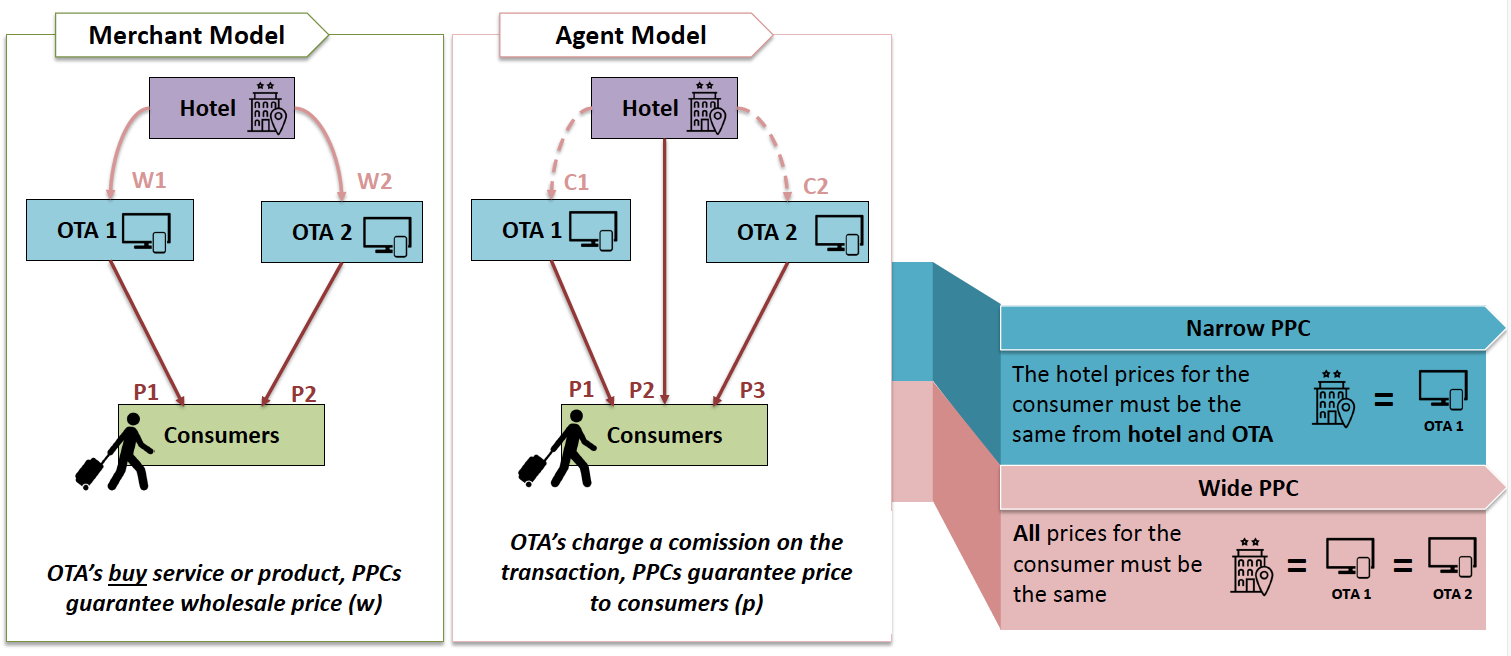
Editor’s note: This post is part of a series showcasing Barcelona GSE master projects by students in the Class of 2018. The project is a required component of every master program.
Authors:
Samantha Catalina Guerrero Putz and Josep Peya
Master’s Program:
Competition and Market Regulation
Paper Abstract:
Under the context of digital platforms who act as an intermediary between consumers and sellers, Price Parity Clauses (PPCs) is a contractual restriction for the seller not to sell at a lower price through any other channel (the so-called wide PPCs), or only in its own channel (narrow PPCs). These clauses present a trade-off between efficiencies and anticompetitive effects. On one side, PPCs act as a committing device of the seller to solve the show-rooming effect suffered by platforms (a particular form of free- riding), at the same time that it ensures platforms viability and enhances its incentives to invest and innovate. On the other side, PPCs allow platforms to charge higher fees, and lead to foreclosure of the market. Currently, neither the EC nor NCAs have set a clear guidance on how to assess these clauses. The main contribution of this paper is to set a legal standard for both wide and narrow PPCs using the cost-error analysis. The conclusions we arrived to are that wide PPCs should be per se illegal; and narrow PPCs should be presumed legal unless proven otherwise, except if narrow PPCs are eliminating the competitive restraints of the platform, in which case the standard should be that of rebuttable presumption of illegality.
Conclusions:
- Digital Economy will rise the use of Digital Platforms. Network externalities inherent to two-sided markets lead to high market power that make platforms an indispensable ally.
- Digital Platforms use PPCs and this is capturing the interest of Competition Authorities. But there is no consensus with respect to the legal standard.
- PPCs present a trade-off: On the one hand efficiencies results in reduction of search costs, prevents showrooming, incentives on investment and innovation. On the other hand, anti-competitive effects arise, creating high fees, foreclosure, collusion.
- The results of our cost-error analysis are that Wide PPCs Min Type II error, therefore should be Per se illegal. Narrow PPCs Min Type I error: Rebuttable Presumption of Legality, except if (i) One-Stop Shop/Network; (ii) Brand Positioning; (iii) Switching costs: Min. Type II: Rebuttable Presumption of illegality
Download the full paper [pdf]
